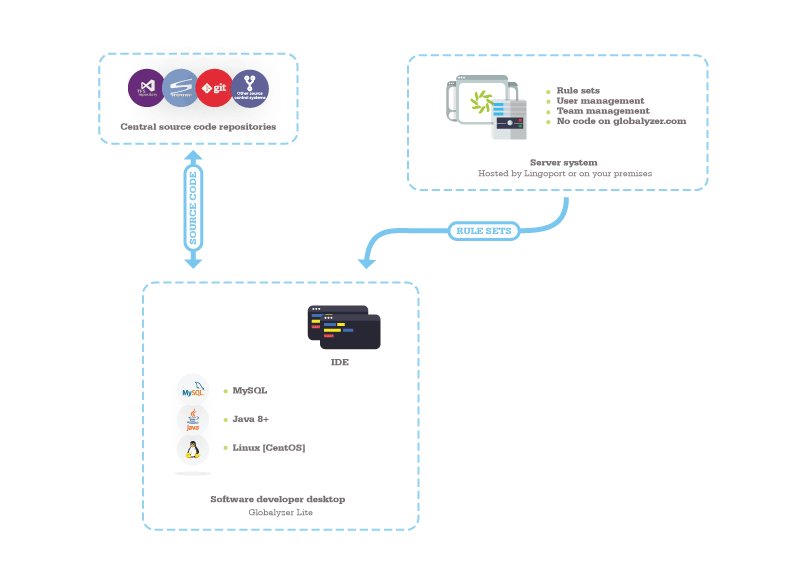Difference between revisions of "Globalyzer Lite for Developers"
(→Typical Deployment) |
(→Typical Workflow) |
||
| Line 11: | Line 11: | ||
= Typical Workflow= |
= Typical Workflow= |
||
| − | The developer uses |
+ | The developer uses Lite within the IDE to: |
* Scan the code being worked on for potential i18n issues before checking in the code to the source code repository |
* Scan the code being worked on for potential i18n issues before checking in the code to the source code repository |
||
* refactors the code based on the checks |
* refactors the code based on the checks |
||
Revision as of 19:04, 27 August 2015
Introduction
Globalyzer Lite can be integrated into a developer's IDE. It allows i18n scanning of a project based on a Globalyzer project definition file most likely at the top level directory of the source code so that developers can check their code before pushing them to the main repository. It does not have the power features of Workbench, but does not demand developers leave their IDE to check code for i18n candidate issues.
Target User
The typical Globalyzer Lite user is a developer working on a global market application.
Typical Deployment
Lite has been unzipped on the software developer's desktop and configured as an external tool in their IDE. The source code has a Globalyzer project definition file at the top level directory which specifies how the code should be scanned. The developer's desktop has access to the Globalyzer server
Typical Workflow
The developer uses Lite within the IDE to:
- Scan the code being worked on for potential i18n issues before checking in the code to the source code repository
- refactors the code based on the checks
- pushes that code to the repository
This requires the rule sets used to scan the code have been vetted and the Globalyzer project definition file makes sense.
